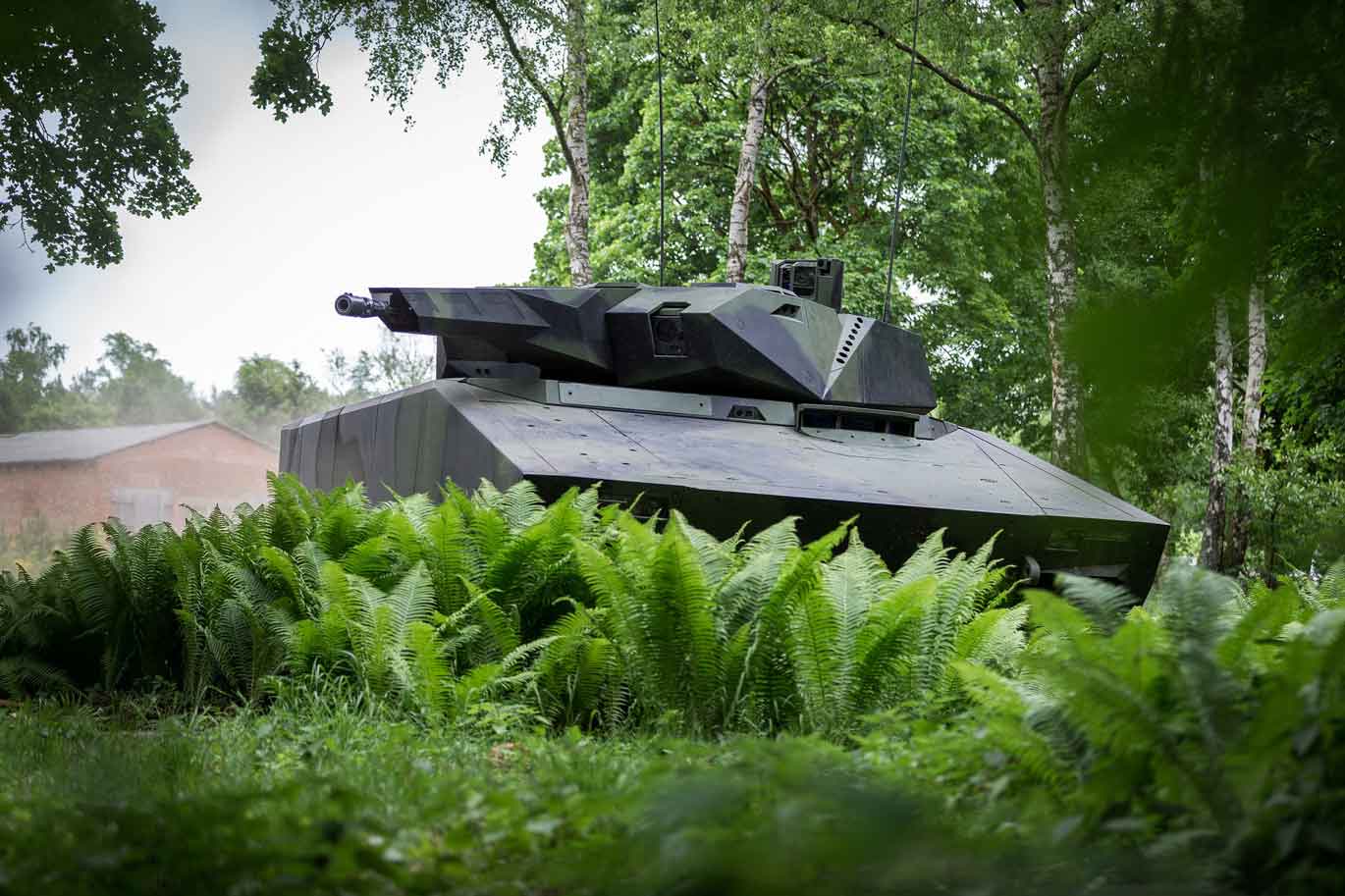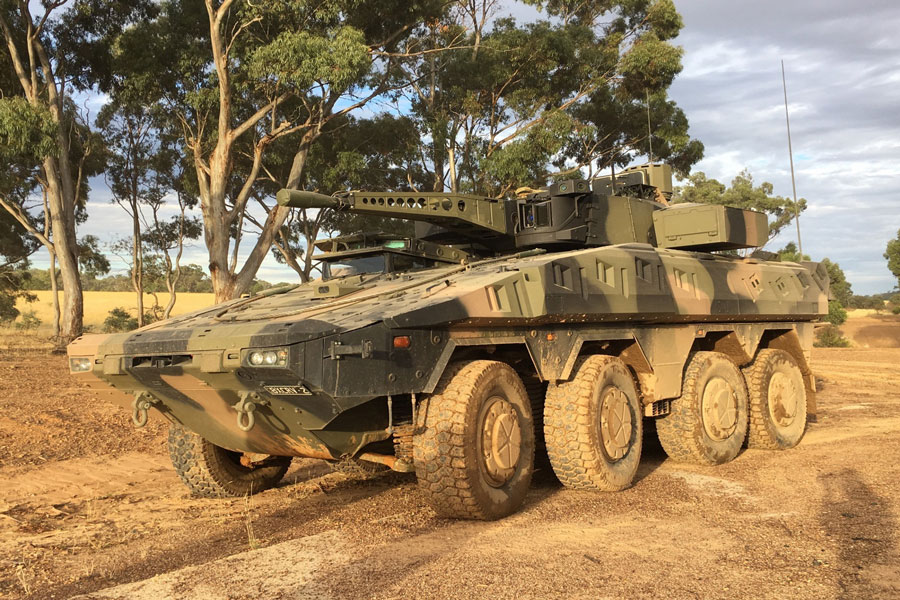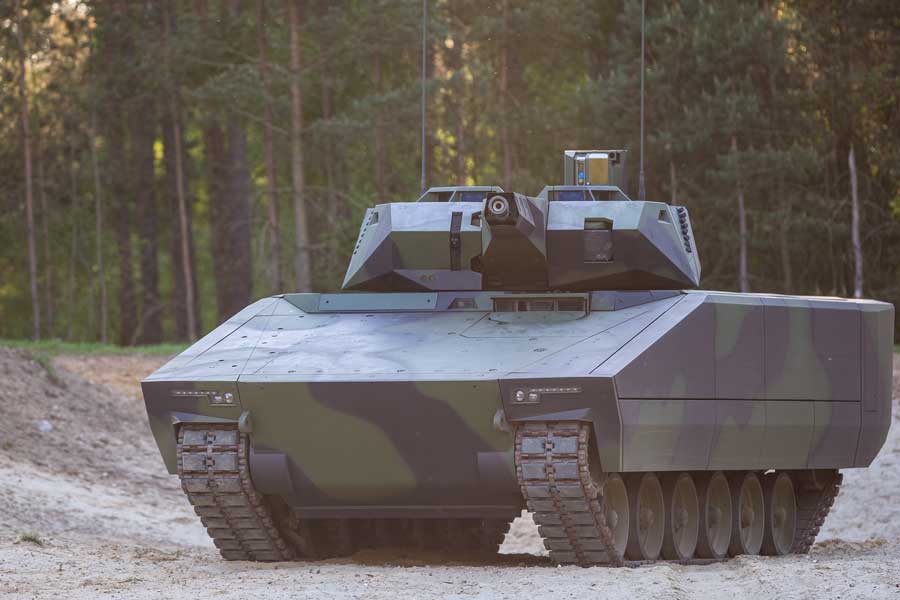Rheinmetall APS for Hungary's Lynx IFV
Hungary to fit Rheinmetall's StrikeShield Active Protection System to its Lynx infantry fighting vehicles.
Anita Hawser
18 May 2021

Active Protection Systems: Rheinmetall
Rheinmetall's StrikeShield hard-kill active protection system will be fitted to Hungary's Lynx infantry fighting vehicles. The order, which is worth more than €140 million, will see the 209 Lynx vehicles recently ordered by Hungary fitted with the APS.
Hungary’s decision in favour of StrikeShield was driven by the NATO member’s commitment to taking part in missions where modern anti-tank weapon systems present a dangerous threat to own forces.
StrikeShield is the third and latest generation of Rheinmetall's Active Defence System (ADS) technology, a specific variant of hard-kill APS. The system uses high-performance sensors, countermeasures, and high-speed computing elements resulting in a distributed APS, which can be integrated on a variety of ground combat and tactical vehicles.
The APS is designed to protect the vehicle from shaped charge warhead threats such as rockets or missiles by neutralizing incoming projectiles before they hit the vehicle. Rheinmetall claims StrikeShield has the fastest reaction time in ambush and multi-hit situations, but it has never been tested in combat.
The only combat-proven APS is the Trophy system designed by Rafael Advanced Defense systems, which was used on Israeli tanks in Gaza to protect them against anti-tank missiles and RPGs.
The StrikeShield APS will be mechanically integrated into hybrid armour tiles on the Lynx. Instead of conventional passive add-on armour modules, the platform will feature spaced passive armour tiles that incorporate the components of the APS between an outer ply and inner tiles mounted on the vehicle’s hull.
Hybrid Active Protection Systems: How do they work?
StrikeShield's countermeasures are embedded in the first protection plate from the outside and serve simultaneously as part of the first layer of passive protection. The sensors of the system are contained in the space in between.
“The effects that passive armour protects you from are standardised and well understood,” says Manfred Salk, CEO of Rheinmetall Protection Systems. “Hybrid designs are different. They allow us to do a much better job of dealing with new effects and threats, such as residual energy from a disabled rocket hitting the vehicle and deflagrating. The combination of our passive and active technologies into hybrid systems therefore offer our customers unique benefits with regard to the protection capability, but also weight- and cost-efficiency.“
In 2019, the US Army awarded a contract worth $11 million (approximately €10 million) to Rheinmetall Protection Systems and Unified Business Technologies (UBT) for “significant testing” of StrikeShield. Testing was due to commence last October at the Redstone Test Center in Huntsville, Alabama. The Army’s recently formed Vehicle Protective Systems (VPS) programme office will evaluate StrikeShield against a variety of anti-armour threats.
Extensive live-fire testing of StrikeShield will be carried out over a period of several months in order to gain performance data that can inform future selection of APS technologies best suited for any platform.
The contract is the first funded APS testing the Army will undertake of StrikeShield. The system could potentially be deployed on vehicles in the current Army fleet as well as new vehicle programmes like the Armoured Multi-Purpose Vehicle (AMPV), Mobile Protected Firepower (MPF) and the Optionally-Manned Fighting Vehicle (OMFV).
Related Articles
Hungary Orders 218 Lynx IFVs
Rheinmetall's APS To Be "Significantly Tested" by US Army

